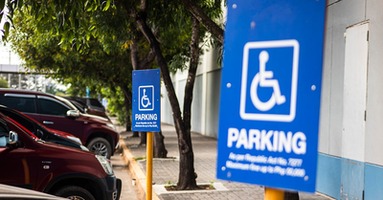
Legal Rights for Pregnant Women Seeking Disabled Parking Permits
Introduction
Pregnancy is a time of significant physical and emotional change, often accompanied by challenges that can impact a woman’s daily life. As the body adapts to accommodate the growing fetus, many women experience conditions that can temporarily impair their mobility, making tasks like walking, standing for long periods, and navigating public spaces more difficult. In recognition of these challenges, many states in the U.S. allow expecting women to apply for disability passes, offering them legal access to designated parking spaces closer to entrances and other facilities.
However, the process of obtaining a disability pass during pregnancy can be complex, and it is essential for expecting women to understand their legal rights when seeking such a permit. This article explores the legal protections and rights available to expecting women applying for disability passes, including a detailed discussion of state-specific laws, the application process, and the types of conditions that may qualify for a special pass. Additionally, we will examine the broader legal framework that supports the rights of expecting women in the United States, highlighting key legislation that protects against discrimination and ensures access to necessary accommodations.
Understanding Disabled Parking Permits: An Overview
What Are Disabled Parking Permits?
Disabled parking permits, also known as handicap placards, are special passes issued by state authorities that allow individuals with mobility impairments to park in designated accessible parking spaces. These spaces are typically located closer to building entrances and provide additional room for maneuvering, making it easier for individuals with physical challenges to enter and exit their vehicles. Handicap tags can be issued on a temporary or permanent basis, depending on the nature and duration of the individual’s mobility impairment.
Who Qualifies for a Disabled Parking Permit?
In general, disability passes are available to individuals who have a physical or medical condition that significantly impairs their ability to walk or perform other activities of daily living. Common conditions that may qualify for a disability pass include:
- Severe arthritis or joint disorders
- Neurological or neuromuscular disorders
- Respiratory or cardiovascular conditions
- Temporary mobility impairments (e.g., post-surgery, injury)
During pregnancy, certain conditions can arise that temporarily impact a woman’s mobility and may qualify her for a disability pass. These conditions can include severe pelvic pain, sciatica, high-risk pregnancy complications, extreme fatigue, and post-surgical recovery (e.g., after a cesarean section). Expecting women experiencing these or similar conditions may be eligible for a temporary disability pass, which can provide essential support during this time.
Legal Protections for Pregnant Women Seeking Disabled Parking Permits
Federal Laws Protecting Pregnant Women
Several federal laws provide protections for expecting women in the United States, ensuring their rights in various contexts, including employment, healthcare, and public accommodations. While these laws do not specifically address disability passes, they establish important principles that support the rights of expecting women to access necessary accommodations and protections.
The Americans with Disabilities Act (ADA)
The Americans with Disabilities Act (ADA) is a landmark civil rights law that prohibits discrimination against individuals with disabilities in all areas of public life, including employment, transportation, and access to public services. While pregnancy itself is not considered a disability under the ADA, pregnancy-related conditions that substantially limit one or more major life activities may qualify as a disability.
For example, an expecting woman experiencing severe pelvic girdle pain or sciatica that significantly impairs her ability to walk may be considered to have a disability under the ADA. In such cases, the ADA requires that reasonable accommodations be provided to ensure the individual’s equal access to public services, which could include access to disability passes and designated parking spaces.
The Pregnancy Discrimination Act (PDA)
The Pregnancy Discrimination Act (PDA) is an amendment to Title VII of the Civil Rights Act of 1964, which prohibits discrimination on the basis of pregnancy, childbirth, or related medical conditions. Under the PDA, employers are required to treat expecting employees the same as other employees with similar abilities or limitations. This includes providing reasonable accommodations for pregnancy-related conditions, such as modified work duties, adjusted schedules, and access to facilities.
While the PDA primarily applies to the workplace, it reinforces the principle that expecting women should not be discriminated against or denied access to necessary accommodations. This legal framework supports the rights of expecting women to seek and obtain disability passes when they experience conditions that impair their mobility.
The Family and Medical Leave Act (FMLA)
The Family and Medical Leave Act (FMLA) provides eligible employees with up to 12 weeks of unpaid leave per year for certain family and medical reasons, including pregnancy and childbirth. While the FMLA does not directly address disability passes, it ensures that expecting mothers have the right to take time off work for prenatal care, pregnancy-related medical conditions, and recovery from childbirth.
The FMLA also protects employees from retaliation for taking leave, ensuring that expecting mothers can prioritize their health and well-being without fear of losing their jobs. This legal protection is particularly important for women with high-risk pregnancies or severe mobility impairments, who may need to take extended leave or seek additional accommodations, such as a disability pass, to manage their condition.
State-Specific Laws and Regulations
In addition to federal laws, each state has its own laws and regulations governing the issuance of handicap tags. These laws outline the criteria for eligibility, the application process, and the rights of disability tag holders. While there is significant variation from state to state, most states allow expecting women to apply for temporary handicap parking passes if they experience a condition that significantly impairs their mobility.
Eligibility Criteria for Pregnant Women
To qualify for an accessible tag during pregnancy, a woman must typically have a medical condition that impairs her ability to walk or perform other activities of daily living. The specific criteria vary by state but often include the following:
- Pelvic Girdle Pain (PGP): A condition that causes severe pain in the pelvic region, often making it difficult to walk or stand for long periods.
- Sciatica: A condition where the sciatic nerve becomes compressed, leading to sharp, shooting pain down the back and legs.
- High-Risk Pregnancy Complications: Conditions such as preeclampsia, gestational diabetes, or placenta previa, which may require limited mobility or bed rest.
- Post-Surgical Recovery: Recovery from a cesarean section or other pregnancy-related surgery that temporarily impairs mobility.
- Severe Fatigue or Anemia: Conditions that cause extreme fatigue or weakness, making it difficult to walk long distances or perform physical tasks.
Application Process
The process for applying for an accessible tag during pregnancy generally involves the following steps:
Obtain Medical Certification: The expecting mother must obtain certification from a handicapMD healthcare provider (e.g., OB-GYN, primary care physician) confirming that her pregnancy-related condition significantly impairs her mobility. The certification should include details about the condition, the expected duration of the impairment, and the need for a special parking pass.
Complete the Application Form: The woman must complete an application form provided by her state’s Department of Motor Vehicles (DMV) or equivalent agency. The form typically requires personal information, vehicle details, and the healthcare provider’s certification.
Submit the Application: The completed application form, along with the medical certification, must be submitted to the DMV or appropriate agency. Some states allow applications to be submitted online, while others require in-person or mail submission.
Receive the Permit: Upon approval, the DMV will issue a temporary disability pass, which can be used for the duration of the pregnancy or the period of limited mobility. The disability pass is typically valid for six months but can be extended if necessary.
Rights of Pregnant Women with Disabled Parking Permits
Once an expectant woman obtains a handicap tag, she has the right to use designated accessible parking spaces, just like any other disability pass holder and avail the benefits of a disabled parking permit during pregnancy. These rights include:
Access to Reserved Parking Spaces: The disability tag allows the woman to park in spaces reserved for individuals with disabilities, which are typically located closer to building entrances and provide additional space for maneuvering.
Protection Against Discrimination: Under federal and state laws, expecting women with disability passes are protected against discrimination and harassment. They have the right to use their tag without being questioned or challenged by others, as long as the tag is valid and properly displayed.
Right to Reasonable Accommodations: If an expectant woman needs additional accommodations beyond a disability pass, she has the right to request reasonable accommodations from her employer, healthcare provider, or other service providers, as required by the ADA and PDA.
Right to Privacy: Expecting women are not required to disclose the specifics of their medical condition to anyone other than their healthcare provider and the DMV. They have the right to privacy regarding their health information and the reason for their disability pass.
Legal Challenges and Considerations
Misuse of Disablity Passes
While disability passes provide essential support for individuals with mobility impairments, including women in gestation, the misuse of these disability passes is a significant issue. Misuse can include using someone else’s pass, using a pass after it has expired, or using a disability pass when the individual’s condition no longer warrants it.
Childbearing women who obtain a disability pass should be aware of the legal and ethical considerations surrounding its use. It is important to use the pass only when necessary and to follow all state and local regulations regarding its display and use. Misuse of a handicap tag can result in fines, penalties, and the revocation of the special pass.
Enforcement and Legal Recourse
Enforcement of handicap pass regulations varies by state and locality. In most areas, parking enforcement officers or police are responsible for ensuring that only individuals with valid passes park in designated accessible spaces. Violations can result in fines, towing, or other penalties.
Women during their maternal phase who experience discrimination or harassment related to their disability pass have legal recourse under federal and state laws. They can file a complaint with their state’s human rights commission, the U.S. Equal Employment Opportunity Commission (EEOC), or other relevant agencies. Additionally, they may seek legal representation to address any violations of their rights.
Advocacy and Awareness
Advocacy and awareness efforts play a crucial role in ensuring that expecting women have access to the accommodations they need, including disability passes. Organizations like the American Civil Liberties Union (ACLU), the National Partnership for Women & Families, and the March of Dimes work to protect the rights of expecting women and promote policies that support their health and well-being.
Pregnant women and their families can also advocate for themselves by staying informed about their legal rights and the resources available to them. By understanding the legal framework that supports their rights and seeking out the necessary accommodations, expecting women can navigate the challenges of pregnancy with greater confidence and security.
Section on Disabled Parking Permits for Women While Expecting
As previously discussed, accessible parking passes are typically associated with permanent disabilities. However, many states recognize that certain temporary conditions, including those related to pregnancy, can significantly impair mobility and warrant a temporary disability parking tag. This section provides additional details on the application process, eligibility criteria, and considerations for women in gestation seeking a disability parking tag.
Eligibility Criteria for Pregnancy-Related Conditions
Pregnant women may be eligible for a temporary handicap tag if they experience a condition that significantly impairs their mobility. Common pregnancy-related conditions that may qualify include:
- Pelvic Girdle Pain (PGP): Severe pain in the pelvic region that makes walking or standing difficult.
- Sciatica: Compression of the sciatic nerve, causing pain and numbness in the lower back and legs.
- High-Risk Pregnancy: Conditions that require limited physical activity or bed rest, such as preeclampsia or gestational diabetes.
- Post-Surgical Recovery: Recovery from a cesarean section or other surgery that temporarily limits mobility.
- Severe Fatigue or Anemia: Conditions that cause extreme tiredness or weakness, making it difficult to perform physical tasks.
Application Process
The application process for a disability pass during pregnancy typically involves the following steps:
Consult with a handicapMD Healthcare Provider: The pregnant woman should discuss her symptoms and mobility challenges with a handicapMD healthcare provider, who can determine whether her condition qualifies for a special parking pass.
Obtain Medical Certification: If the healthcare provider determines that the woman’s condition warrants a disability tag, they will provide a medical certification, which must be submitted with the application.
Submit the Application: The woman must complete and submit the application form, along with the medical certification, to her state’s DMV or equivalent agency. The form may be submitted online, by mail, or in person, depending on state regulations.
Receive the Disability Tag: Upon approval, the woman will receive a temporary disability parking pass, which can be used for the duration of her pregnancy or until her condition improves.
Considerations for Pregnant Women
When applying for a disability pass during pregnancy, women should consider the following:
Duration of the Disability Tag: Temporary disability passes are typically issued for six months but may be extended if necessary. Expecting women should consult with their healthcare provider to determine the appropriate duration for the tag.
Use of the Disability Tag: Expecting women should use the tag only when necessary, such as when their mobility is significantly impaired. Misuse of the tag can result in penalties and may negatively impact other individuals who need access to accessible parking spaces.
Legal Rights and Protections: Pregnant women with disability passes are entitled to the same legal protections as other authorized holders. They have the right to use designated accessible parking spaces without fear of discrimination or harassment.
Conclusion
Pregnancy is a time of profound physical and emotional change, and for many women, mobility challenges can add an additional layer of difficulty. Accessible parking tags provide essential support for childbearing women facing conditions that impair their mobility, offering them easier access to public spaces and reducing physical strain.
Understanding the legal rights and protections available to expecting women seeking handicap parking tags is crucial. Federal laws like the ADA and PDA, as well as state-specific regulations, ensure that expectatant motheres have access to necessary accommodations and are protected against discrimination. By staying informed about their rights and the application process, pregnant women can confidently navigate the challenges of pregnancy and focus on their health and well-being.
As awareness of the importance of disability passes for expecting women grows, it is essential to continue advocating for policies and practices that support the needs of all individuals with mobility impairments. By doing so, we can ensure that pregnant women have the resources they need to manage the demands of pregnancy and prepare for the arrival of their new baby.
References
- American Civil Liberties Union (ACLU). (2023). "Pregnancy Discrimination and Your Rights." Available at: https://www.aclu.org
- National Partnership for Women & Families. (2022). "Understanding Your Rights During Pregnancy." Available at: https://www.nationalpartnership.org
- U.S. Equal Employment Opportunity Commission (EEOC). (2021). "Pregnancy Discrimination Act." Available at: https://www.eeoc.gov
- ADA National Network. (2022). "The Americans with Disabilities Act (ADA) and Pregnancy." Available at: https://adata.org
- Department of Motor Vehicles (DMV) – Various States. (2023). "Disabled Parking Permit Regulations for Pregnant Women." Available at: https://www.dmv.org
- March of Dimes. (2021). "Managing Pregnancy-Related Mobility Issues." Available at: https://www.marchofdimes.org
.png)






